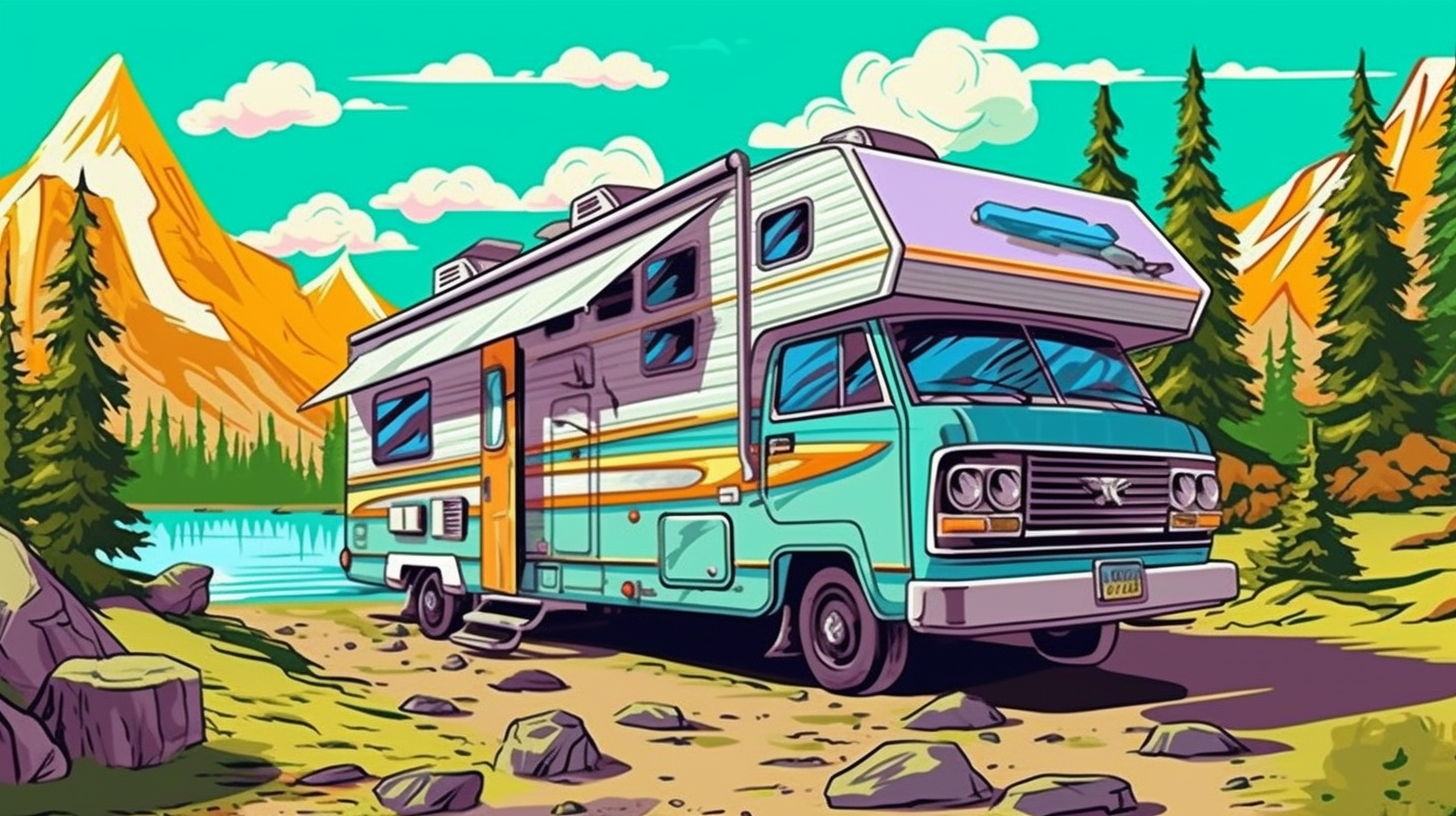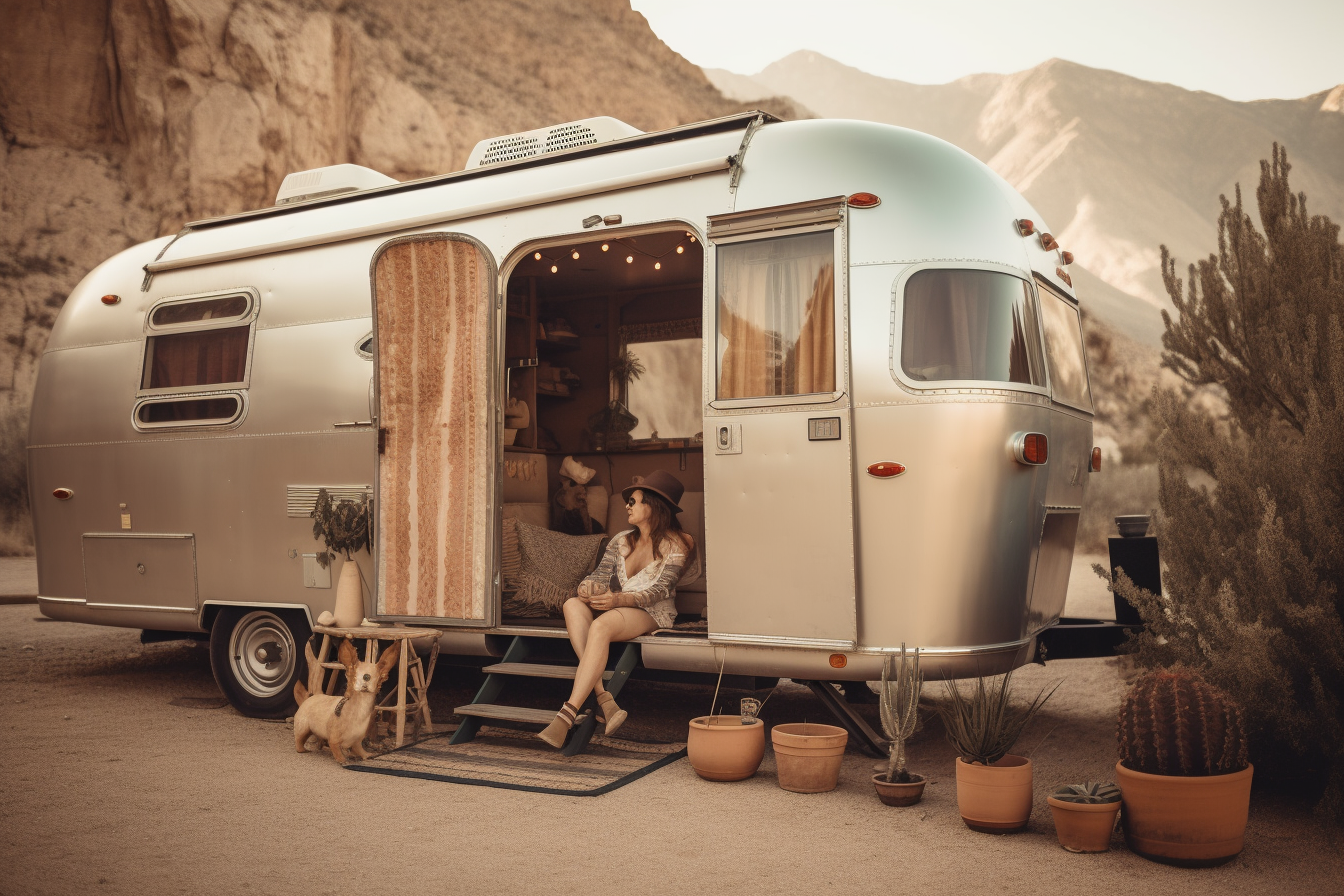Recreational vehicles, or RVs, have become a popular mode of travel for adventurers seeking to explore the country. However, the high cost of purchasing or renting an RV can be a significant barrier for many people. Fortunately, there are several affordable options available on the market, ranging from small pop-up trailers to luxurious Class A motorhomes.
This article will explore the various types of affordable RVs and provide insights into how to choose the right one for your needs and budget. Whether you’re a seasoned traveler or just starting to explore the world of RVing, there’s sure to be an option that fits your needs and budget.
From simple pop-up trailers that offer basic amenities to spacious Class A motorhomes with all the bells and whistles, RVs come in all shapes and sizes. By understanding the different types of RVs and their features, you can make an informed decision about which one is right for you.
In this article, we’ll delve into the world of affordable RVs and guide you through the process of selecting the perfect one for your next adventure.
Choosing an Affordable RV
Recreational vehicles (RVs) come in various types and sizes, from travel trailers to truck campers. RVers can choose from different models depending on the activities they want to do, the trips they plan to take, and the budgets they have. In this article, we’ll discuss how to choose an affordable RV that suits your needs.
RV Types
If you’re in the market for a new RV, it’s important to understand the different types available to make an informed decision that aligns with your preferences and needs. There are several RV types to choose from, each with unique features and benefits.
Class A RVs are the biggest type of RVs available. Built on a heavy-duty chassis, they offer the most space and luxurious amenities, making them ideal for full-time living or extended trips. These RVs often come with multiple slide-outs, expansive living areas, and complete kitchens.
Class B RVs, also known as camper vans, are smaller RVs built on a van chassis. They are more compact and maneuverable, with better gas mileage and easier access to urban areas. Class B RVs usually come with beds, a small kitchen, and a bathroom, although the amenities vary by model.
Class C RVs are mid-sized RVs built on a truck chassis, offering a balance between space and ease of driving. These RVs are often equipped with a sleeping area above the cab, a private bedroom, a living area, and a kitchen. They also typically come with slide-out options, similar to Class A RVs.
Travel trailers are the most popular type of RVs because of their versatility and convenience. They come in a range of sizes and styles, making them suitable for different travel destinations. Travel trailers are towable, so you’ll need an appropriate vehicle to tow them. They are equipped with all the basic amenities you’d need for camping, including a kitchen, bathroom, and sleeping area.
Fifth-wheel trailers are a type of travel trailer that are larger and offer more living space. They typically require a pickup truck with a fifth-wheel hitch to tow them, as they attach to the truck bed instead of the bumper. These trailers are ideal if you’re looking for more luxurious amenities and want a more permanent or long-term living solution.
Overall, these are the five main RV types that you can choose from: Class A, Class B, Class C, travel trailers, and fifth-wheel trailers. Each type comes with its unique features and benefits to help you explore your outdoor adventures, regardless of your preferences or budget.
Factors to Consider
Before choosing an RV, consider the size, capacity, and floor plan that suits your needs. Ask yourself what activities you plan to do, how many people will be traveling with you, and what amenities you need. Check the RV’s weight, towing capacity, and fuel efficiency. Consider if you need storage for sports equipment or an outdoor shower.
Affordable RVs – Options
Some affordable RV options for full-time or casual campers include:
Forest River R-Pod: Lightweight travel trailers with unique floor plans, ranging from 18 to 20 feet in length.
Coachmen Clipper: Entry-level travel trailers with several floor plans and lengths up to 19 feet.
Gulfstream Conquest Class C: Mid-sized motorhomes with several floor plans and lengths up to 31 feet.
Lance Truck Camper: Lightweight truck campers with a variety of models to fit different types of trucks.
Airstream Basecamp: Compact travel trailers with a sleek design and outdoor amenities.
And of course, there is always the option of doing the camper conversion yourself! Check out this article…
Negotiating for Discounts and Dealer Fees
When purchasing an RV, negotiate for discounts and inquire about any dealer fees. Ask for a fair price, and compare the offers from different dealerships. Check if there are errors in pricing or additional fees. Look for clearance sales or discounts on previous year models. When purchasing a new RV, ask about delivery fees or interstate delivery charges. Consider financing or pre-owned RVs to save money.
An In-Depth Look At Camper Options
Pop-Up Trailers
Pop-up trailers are a type of recreational vehicle that offer basic amenities and canvas walls, making them a more budget-friendly option compared to other RVs on the market. These trailers are lightweight and compact, making them easier to tow and maneuver on the road. While they may lack some of the luxuries of larger RVs, such as air conditioning and heating, they provide a cozy space for sleeping and relaxing during camping trips.
When considering purchasing a pop-up trailer, it is important to weigh the pros and cons of renting versus buying. Renting a pop-up trailer can be a cheaper option, especially for those who only plan on using it a few times a year. However, buying a pop-up trailer can provide long-term savings for frequent campers. It is important to consider the cost of maintenance and storage when purchasing, as well as the potential for resale value in the future. Ultimately, pop-up trailers are a great budget-friendly option for those looking to experience the joys of RV camping without breaking the bank.
| Pros | Cons |
|---|---|
| Affordable | Lack of amenities |
| Lightweight and compact | Canvas walls may be less durable |
| Easy to tow and maneuver | Limited space |
| Cozy sleeping and lounging space | May require additional fans and heaters |
Fifth Wheel Campers
Fifth-wheel campers offer more amenities than their smaller counterparts and are a popular choice for those who desire a comfortable camping experience on the road. These towable luxury RVs come with features such as slide-out rooms, full-sized bathrooms, and spacious living areas.
New fifth-wheel models typically cost between $40,000-$75,000, while used models can be found for as low as $13,000. If you’re looking for budget-friendly options, renting a fifth-wheel camper may be the way to go. Many rental companies offer a variety of models and prices, allowing you to choose the best option for your needs.
However, if you plan on using a fifth wheel frequently, purchasing a used model could save you money in the long run. Overall, fifth-wheel campers provide a level of comfort and luxury on the road that is unmatched by other types of RVs.
Camper Vans and Class A’s
Camper vans and Class A RVs are two distinct types of recreational vehicles that offer unique features and amenities for travelers.
Camper vans, also known as class B RVs, are small and easy to drive, making them a popular choice for those who are looking for a more mobile option. They come with basic amenities such as a bed, a small kitchen, and a bathroom, but can also include more luxurious features like a flat-screen TV or a sound system.
Buying a camper van requires a considerable investment, and maintenance and fuel costs can add up quickly. However, there are many rental options for those who want to experience the lifestyle without committing to the high costs of owning one.
On the other hand, Class A RVs are the largest and most luxurious type of RV on the market. They offer a wide range of amenities and more space than any other type of RV. New Class A models can cost anywhere from $55,000 to the millions, while used models can range from $6,000 to $250,000.
Buying a Class A RV also requires a significant investment, and maintenance and fuel costs are considerably higher than those of smaller RVs. However, renting a Class A RV can be a more sensible option for those who only plan to use it a few times per year.
Buying vs renting, pros and cons should be considered when deciding on which type of RV to go for.
Frequently Asked Questions
Are there any additional costs associated with owning or renting an RV besides the initial purchase or rental fee?
RV ownership or rental comes with additional costs such as RV insurance, maintenance, repairs, fuel, and campground fees. Hidden costs may include unexpected repairs and upgrades. Proper planning and budgeting can help mitigate these expenses.
What are some important factors to consider when choosing an RV, besides price and amenities?
When choosing an RV, it’s important to consider lifestyle compatibility and RV size. Factors like storage, driving capabilities, and fuel efficiency should also be taken into account.
How do I properly maintain and care for my RV to ensure it lasts as long as possible?
Implementing regular RV maintenance tips and longevity strategies, such as checking for leaks, maintaining the engine and tires, and keeping the interior clean and dry, can significantly increase the lifespan of your RV.
Can I finance the purchase of an RV, and if so, what are the typical interest rates and loan terms?
RV financing is available at various interest rates and loan terms, depending on factors such as credit score, down payment, and insurance coverage. RV loan calculators and pre-approval can help budget and find extended warranties.
Are there any legal requirements or regulations I should be aware of when driving or parking my RV, such as size restrictions or permit requirements?
When parking and driving an RV, it is important to be aware of legal considerations such as permit requirements and size restrictions. Regulations vary by state and municipality, so it is important to research and comply with local laws.





